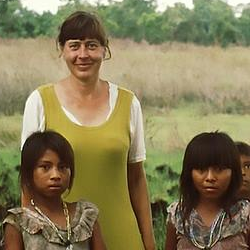Scaling Climate Change to Human Behavior. Predicting Good and Bad Years for Maya Farmers
Authors:
Karen L Kramer, Joseph Hackman
Abstract:
Objectives: Human responses to climate variation has a rich anthropological history. However, much less is known about how people living in small-scale societies perceive climate change, and what climate data are useful in predicting food production at a scale that affects daily lives. Methods: We use longitudinal ethnographic interview and economic data first to ask what aspects of climate variation affect the agricultural cycle and food production for Yucatec Maya farmers. Sixty years of high-resolution meteorological data and harvest assessments are used to then detect the scale at which climate data predict good and bad crop yields. Finally, we analyze long-term changes in climate variables critical to food production. Results: We find that 1) only local, daily precipitation closely fits the climate pattern described by farmers. Other temporal (annual and monthly) scales miss key information about what farmers find important to successful harvests; 2) At both community- and municipal-levels, heavy late-season rains associated with tropical storms have the greatest negative impact on crop yields; 3) in contrast to regional and state long-term trajectories, local measures show an increase in rainfall during the late growing season, suggesting that fine-grained spatial data are needed to make accurate inferences about climate trends. Conclusion: Our findings highlight the importance to define climate variables at scales appropriate to human behavior. Course-grained annual, monthly, national and state-level data tell us little about climate attributes pertinent to farmers and food production. However, high resolution daily, local precipitation data do capture how climate variation shapes food production.
This publication can be viewed here

